Learn the Basics of Preventative Health
1
Learn. Get tips specific to your needs.
2
Practice. Choose from helpful strategies.
3
Want more help? Connect with your Crossover care team.
EXPERT GUIDANCE PROVIDED BY:
-
Illisha Dunleavy, MSN, CNLNurse PractitionerIllisha loves people and her community – the opportunity to serve the community where she grew up is special to her. She enjoys spending time with patients and getting to know them, their health journey, and what makes them tick.
-
Carlos Bazley-Hernandez, MAMedical AssistantCarlos is passionate about patient education, and making people feel comfortable and safe. One of his favorite phrases: there’s no such thing as a silly question. He views working in healthcare as a daily opportunity to be helpful.
-
Jessica Chang, MS, RNRegistered NurseJessica has been a nurse for over eight years, working primarily in the neurosurgery specialty. She loves the idea of a truly connected care team that works together to support whole health – that’s a big part of her enthusiasm for Crossover.



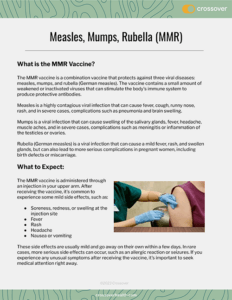 Measles, Mumps, Rubella
Measles, Mumps, Rubella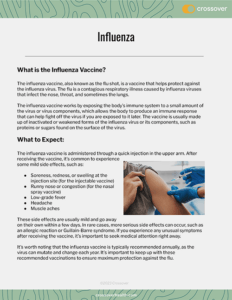 Influenza
Influenza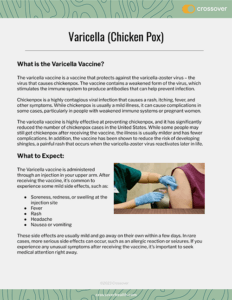 Varicella
Varicella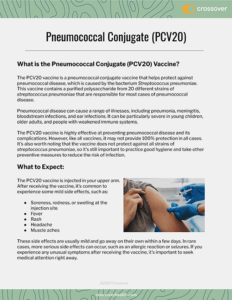 Pneumococcal Conjugate
Pneumococcal Conjugate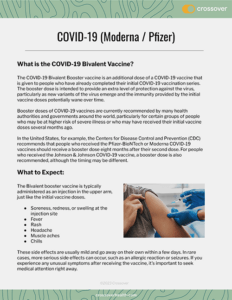 COVID-19
COVID-19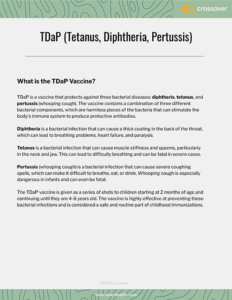
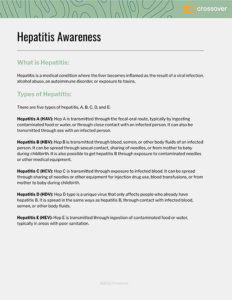 Hepatitis Awareness
Hepatitis Awareness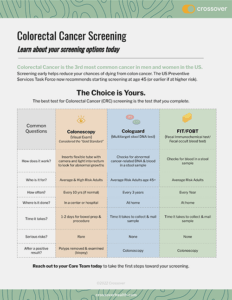 Colorectal Cancer Screening
Colorectal Cancer Screening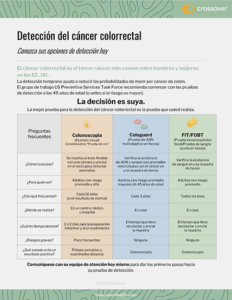 Detección del cáncer colorrectal
Detección del cáncer colorrectal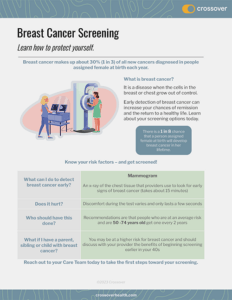 Breast Cancer Screening
Breast Cancer Screening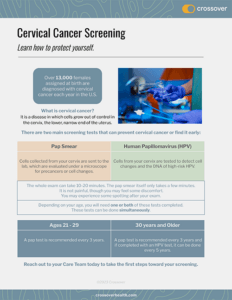 Cervical Cancer Screening
Cervical Cancer Screening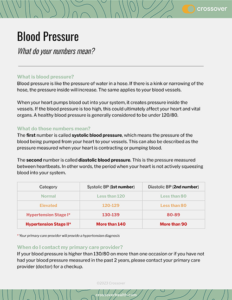 Blood Pressure – What Do Your Numbers Mean?
Blood Pressure – What Do Your Numbers Mean?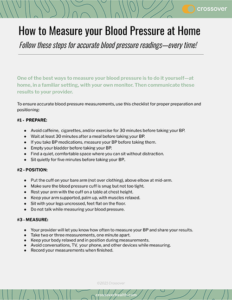 How to Measure your Blood Pressure at Home
How to Measure your Blood Pressure at Home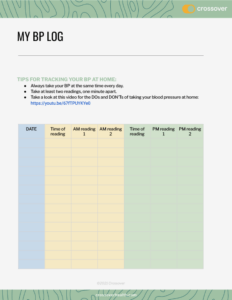 Blood Pressure Log
Blood Pressure Log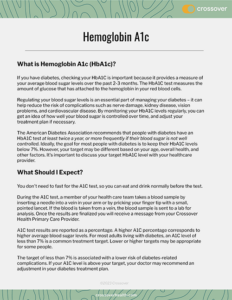 Hemoglobin A1c
Hemoglobin A1c
You may not realize it, but a range of social factors can greatly affect your overall wellbeing and the likelihood of developing health problems. These determinants include social, economic, and environmental factors that can impact your health outcomes.
Intimate Partner Violence
Intimate partner violence (IPV) refers to any form of abuse or violence that occurs within a close relationship or between intimate partners. It can involve physical, sexual, emotional, or psychological harm inflicted by one partner onto the other. IPV can occur in heterosexual or same-sex relationships, and it affects individuals of all genders, ages, races, and socioeconomic backgrounds. Examples of intimate partner violence include physical assault, sexual coercion, emotional manipulation, stalking, threats, and controlling behaviors. IPV is a serious health issue that can have long-lasting physical, emotional, and social consequences on your health.
Because Intimate Partner Violence (IPV) can profoundly affect your overall health and safety, healthcare providers screen for signs of IPV, and can connect you with resources and protection services if you are experiencing any signs of IPV to break the cycle of abuse. You can learn about healthy relationships and what abusive behaviors look like. You can also get support identifying any necessary medical care and specialized services that may help in your recovery. Though these questions can be hard to talk about, Crossover has created a safe space for you to share your experience and get the help and support you need to heal and ultimately, thrive.
Interested to hear more about IVP? Check out our podcast.
Loneliness
Loneliness may not seem like a health concern at first, but it can significantly impact your mental and physical wellbeing. If you’ve ever experienced loneliness, you likely know how important your social connections are to maintaining good health. Chronic loneliness can increase your risks of experiencing depression, anxiety, and a range of physical health issues. If you are feeling lonely, healthcare providers can offer support, intervention strategies, and resources to help you get through the slump. It allows for proactive prevention and intervention, promoting social support, community engagement, and an improved sense of well-being for individuals affected by loneliness.
For more information on loneliness, take a look at the resources on our Loneliness Be Well page.
Food Access
At Crossover, we’ll also ask you about your access to nutritious food. This is important because having enough healthy food is a big part of staying healthy. If you don’t have enough food or struggle to find healthy options, your provider can help you find resources like food assistance programs, community gardens, or nutrition education. By checking on your food access, your provider is also working to make sure that everyone, regardless of their income or where they live, has the same chance to be healthy.
For more information on food access, look at the resources on our Food Access Be Well page.
Housing Stability
Having a stable and safe place to live plays a big role in your overall health. When we assess your housing stability, we can identify if you have any housing-related challenges or if you’re at risk of homelessness. This information helps your provider connect you with resources and support services like housing assistance programs, financial counseling, or community organizations that can help you find and maintain stable housing. By addressing housing stability, your providers are working to ensure that you have a secure foundation for good health and well-being.
Financial Stability
Financial stability has a direct impact on your stress levels, mental health, and often relationships, among other factors. For that reason, we assess your financial situation to identify any challenges or risks you may be facing. We believe that addressing financial stability can help improve your overall health and quality of life by reducing stress and allowing you to better manage your finances.
If you are experiencing any financial challenges or risks, your Crossover provider can connect you with resources like financial counseling, budgeting assistance, or public assistance programs that can give you a path forward and alleviate some of the pressure. By reducing the financial burden on you and your family, we strive to improve your overall health, wellbeing, and outlook on life.